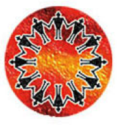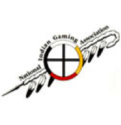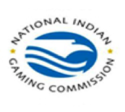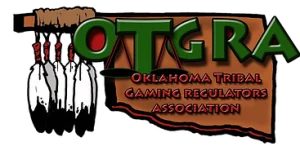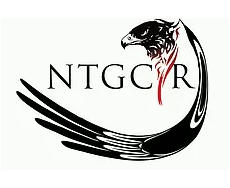About
Oklahoma Indian Gaming Association (OIGA), established in 1986, is a non-profit organization of Indian Nations with other non-voting associate members representing organizations, tribes and businesses engaged in tribal gaming enterprises from around Oklahoma. The common commitment and purpose of OIGA is to advance the welfare of Indian peoples economically, socially and politically.
Mission and Vision
The mission of the Oklahoma Indian Gaming Association is to promote the general welfare of the Oklahoma Indian Tribes through the development of sound policies and practices with respect to the conduct of gaming enterprises in Indian Country. As a trade association, the purpose of OIGA is to educate and disseminate information to the tribal, federal, and state governments and the general public on issues relating to tribal government gaming.
Officers
If you have any comments or questions, please feel free to contact us via our physical location, telephone, or email.
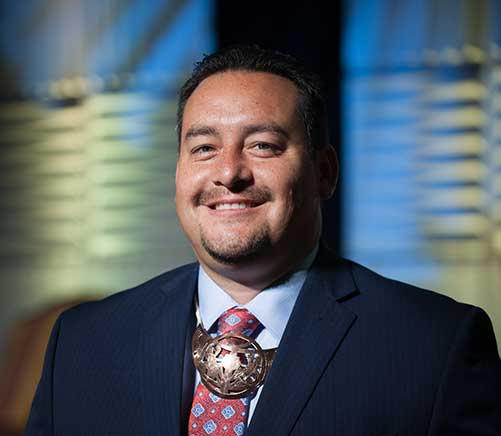
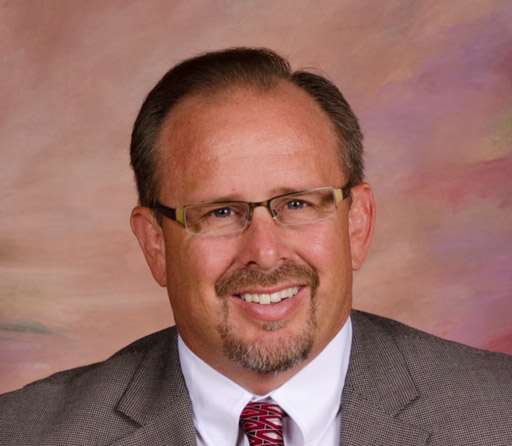
Billy Friend, Chief
OIGA Vice Chairman
bfriend@wyandotte-nation.org
Wyandotte Nation
64700 E. 60 Hwy
Wyandotte, OK 74370

Christian Fenner
OIGA Secretary/Treasurer
chistiand@choctawnation.com
Choctaw Nation of Oklahoma
P.O. Box 1909
Durant, OK 74701
Phone 580-920-0160 Ext. 1156
Fax 580-920-0760
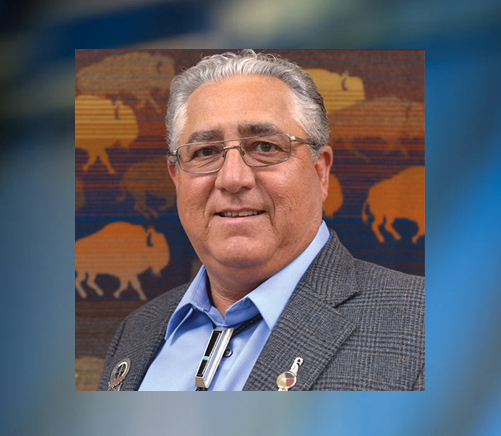
Jerry Lankford
OIGA Executive Delegate at Large
jlankford@miamination.com
Miami Tribe of Oklahoma
P.O. Box 1326,
Miami, OK 74354
Phone 918-541-1357
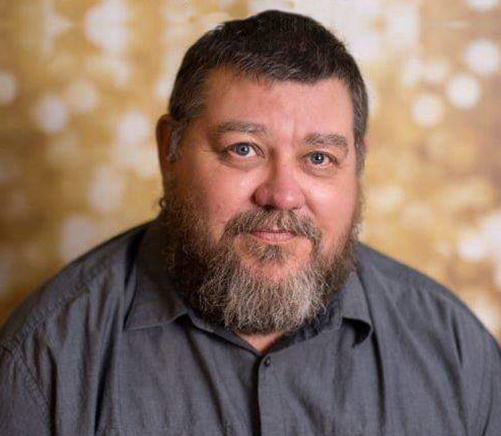
Wes Pappan
OIGA Executive Delegate at Large
History
Tribal Government Gaming in Oklahoma began several decades ago with simple bingo halls situated in retrofitted buildings. Today, 35 Tribal Nations in Oklahoma currently operate more than 130 gaming facilities with approximately 72,850 electronic games, almost 5,300 bingo seats and other games. Tribal Government Gaming operations include 20 casinos with hotels/resorts with a combined total of more than 5,000 rooms, and almost 500,000 square feet of meeting, function and entertainment space.
Other related ancillary facilities and amenities include almost 200 restaurants and bars, nine golf courses with a total of 126 holes, five spas, seven RV parks with nearly 375 sites, more than 50 gas and convenience stores as well as destination and convenience retail, several bowling centers, laser tag and a movie complex.
Oklahoma has the second largest Native American population in the United States, behind only California. According to the 2010 Census, 482,760 Oklahomans identified as Native American alone or in combination with other races.
Tribal Gaming Timeline
1992
First tribal/state compact is signed; allows only pari-mutuel horse race wagers at tribal casino.
1992 to 2000
Tribes focus on maximizing Class II games, including continued development of electronic aids for Class II games.
2004
Some uncertainties remained, so tribes and state discussed expanded compacts to allow for skill games and card games. The proposed compact that was the result of negotiations between the Governor and Tribes was put on the ballot as State Question 712. The compact applies to Class III gaming only.
2009
Oklahoma led the nation in the growth rate of tribal gaming.
Awards
Chairman’s Award for Outstanding Achievement in Indian Gaming
This award honors those in Oklahoma Indian Gaming Operations who have worked through the ranks and made significant impact in their own workplaces and communities and who have also been living examples of the positive impacts that Oklahoma’s Tribal Government Gaming industry has brought.
These recipients epitomize the intent and purpose of Tribal Government Gaming Operations. Their personal achievements and growth has helped the Oklahoma Indian Gaming Industry achieve the high level of success that we now enjoy.
These milestones of their success are not only measured in actual dollars or profits for their tribal benefactors, but the personal, professional and spiritual growth of those involved in this industry.
Most importantly, these honorees have helped our young people grow into strong young men and women, and have proven that if given the opportunity, ordinary people can accomplish extraordinary things, thanks to the dedication and discipline that this industry offers its members.
Modern Day Warrior Award
This award is designed to honor professionals in the Indian Gaming Industry who have dedicated tireless effort and support to champion the cause of Oklahoma Tribal Government Gaming.
The Modern Day Warrior has traded the arrow for the pen, and has been Tribal Government Gaming’s front line of defense for the rights and sovereignty of the nations that comprise the Indian Gaming Industry, in order to keep us on a viable path of progress and prosperity for generations to come.
Facts About Indian Gaming
U.S. SNAPSHOT OF TRIBAL GOVERNMENTAL GAMING
- 573 federally-recognized Indian Tribes
- 241 Tribal Governments engaged in gaming (Class II or Class II)
- 501 Tribal Governmental gaming operations (several Tribes operate more than one facility)
- 29 states with Tribal Governmental gaming: (Class II or Class III)
- 635,000 plus jobs created – 75% held by non-Indians (In areas of high unemployment, 80% of Tribal governmental gaming employees are Indian)
TRIBAL GOVERNMENT GAMING IN OKLAHOMA
- 38 federally-recognized Indian Tribes
- 35 Tribes have signed compacts
- 130+ Tribal gaming operations – these range from an annex to a gas stop to full-scale resort casinos
TRIBES & PER CAPITA PAYMENTS
- Three-fourths of gaming Tribes devote all of their revenue to Tribal governmental services, economic and community development, to neighboring communities and to charitable purposes. 75% of tribes do not give out per capita payments.
- Tribal government services, Economic and Community development, general tribal welfare, charitable donations and any requirements for aid to local governments must be provided for before a Tribe can file for a “Revenue Allocation Plan.”
- The Secretary of the Interior must approve any per capita payments as part of a “Revenue Allocation Plan.”
- Only about one-fourth of Tribes engaged in gaming distribute per capita payments to tribal members.
- Tribal members receiving per capital payments pay federal income tax on these payments.
REGULATION & INDIAN GAMING
- Tribal Governmental gaming is regulated on three levels.
- Under the Indian Gaming Regulatory Act (IGRA), Indian Nations and Tribes are primary regulators of Indian gaming. IGRA stipulates that Tribes establish the basic regulatory framework for Indian gaming.
- State regulation may be included in Tribal/State compacts for Class III gaming.
- Federal agencies enforce laws relating to Indian gaming, including the National Indian Gaming Commission, the Interior Department, the Justice Department, FBI, IRS, Secret Service and the Treasury Department’s Financial Crimes Enforcement Network.
- Federal law makes it a crime punishable by up to ten years in prison to steal, cheat, or embezzle from an Indian gaming operation. That law is enforced by the FBI 18 USC ss.
TAXES & TRIBAL MEMBERS
- All Indian people pay federal income tax.
- All Indian people pay FICA taxes.
- All Indian people pay social security taxes.
- Only those Indians who live and work on their own federally recognized reservations – not unlike soldiers and their families living on military installations – are exempt from paying state income and property taxes.
TRIBAL USE OF NET REVENUES
- Revenues from Tribal Governmental gaming must be used in five specific areas as stipulated by the Indian Gaming Regulatory Act (25 U.S.C. 2710 [Sec. 11].
- Net revenues from any tribal gaming are not to be used for purposes other than
- to fund Tribal Government operations or programs;
- to provide for the general welfare of the Indian tribe and its members
- to promote Tribal economic development
- to donate to charitable organizations
- to help fund operations of local government agencies


